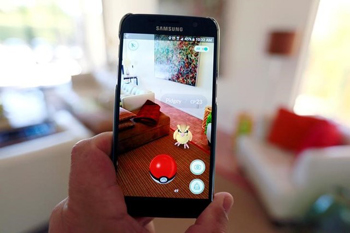Boston, Dec 14: The health benefits of playing the popular augmented reality game Pokemon GO are moderate and wear off after just six weeks, according to a new Harvard study.
 Pokemon Go improves physical activity among adults who use the game, but the effect is moderate and not sustained over time, researchers said.
Pokemon Go improves physical activity among adults who use the game, but the effect is moderate and not sustained over time, researchers said.
Results show that the daily average steps during the first week of installation increased by 955 additional steps - equivalent to half of the World Health Organisation's (WHO) recommendation for physical activity per week.
The following weeks saw a gradual reduction in the number of steps, and this effect was lost after six weeks of game playing.
Pokemon GO is an augmented reality game that projects graphics onto the real world using smartphones, and has been downloaded over 500 million times since its launch in July this year.
It has been suggested that the game can increase physical activity and promote public health, because it incentivises walking. However, these claims are based on anecdotal evidence.
So researchers from Harvard University, co-led by Katherine Howe, Christian Suharlim and Peter Ueda, set out to determine whether playing the game had any effect on physical activity among young adults in the US.
They conducted an online survey of 1,182 participants, aged 18-35, who used smartphones, during August 2016.
In total, 560 (47.4 per cent) of the participants reported playing Pokemon GO at "trainer level" of five or more, which is reached after walking for around two hours.
Data was analysed from automatically recorded step count from the participants' phones and used to estimate the change in daily steps after installation of the game.
The findings show the daily average steps during the first week of installation increased by 955 additional steps.
Assuming steps of 0.8 metre at a pace of four kilometres per hour, the change would translate into 11 minutes of additional walking daily - around half of the WHO's recommendation of 150 or more minutes weekly.
However, the number of steps gradually decreased over the following five weeks, and by the sixth week the number had returned to pre-installation levels.
The results remained the same even after accounting for a number of factors that may have influenced the findings, such as age, sex, race, weight status, and walkability of the area of residence.
"Our results indicate that the health impact of Pokemon GO might be moderate. Even if smaller amounts of physical activity might also be important for health outcomes, the increase in steps from Pokemon GO, as with many physical activity interventions, was not sustained over time," researchers said.
The study was published in The BMJ.






Comments
Add new comment